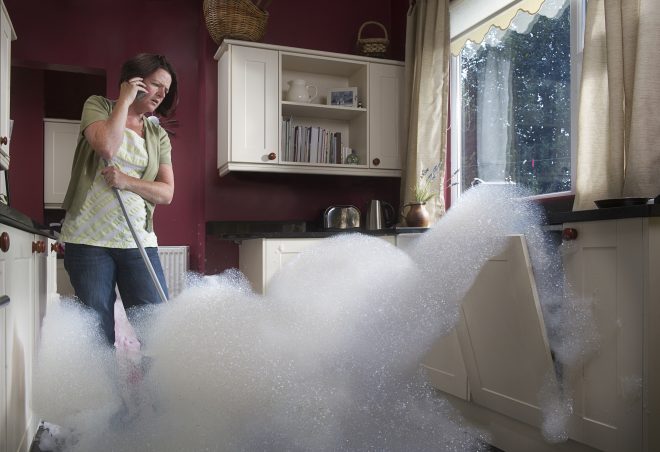The insured’s obligation to limit damages
When you suffer a loss, contact the competent authorities (the fire department or the police, for instance) if necessary, and then quickly notify your insurer. The next step is to try and avoid any further damages.

The first steps to take in the event of a loss
- Notify your insurer to declare your loss and the damages you observed.
- Limit the damages. Do not make any permanent repairs before speaking to the insurer.
- Authorize emergency work, if necessary, to avoid further damages.
- Do not forget to include in your claim the amount spent to limit and avoid further damages.
Discover other steps to take when a loss occurs.
Limiting the damage: a legal obligation
When a claim is made, the insurer is not always able to immediately say whether or not the loss is covered by the client’s insurance contract. It needs time to identify the cause of the loss and verify what the contract covers. In the meantime, the insured is responsible for limiting damages and avoiding them worsening. Indeed, the insurer is not required to compensate the insured for any aggravation of damages that the insured could have avoided (article 1479 of the Civil Code of Québec). For example, if the insured does not dry out a flooded room, mould could develop. The insurer could then refuse the insured compensation for the additional decontamination work required.
The obligation to notify
The Civil Code of Québec also stipulates that you must declare to your insurer any loss likely to lead to a claim, as soon as you become aware of it, even if you do not make a claim. Remember that if you do not notify your insurer or if you do not respect the deadline to do so, you could lose the right to compensation not only for this loss but for a future loss. In fact, if previous damage or a pre-existing condition are discovered, the insurer could refuse you compensation for the portion of the damages resulting from them. When you contact your insurer, make sure you note the date and name of the person you spoke to for future reference. You can also consult the ChAD’s Claimant’s Handbook and use the checklist to keep track of all the steps you have taken.
Simple actions
Many companies specialize in emergency work. You can hire the restoration specialist of your choice, or your insurer can suggest a name, or even dispatch one to the scene. Make sure to clearly understand what they intend to do and the cost before authorizing them to proceed with the work. No matter which restoration company you choose, you do not necessarily have to wait for them to arrive. There are many simple things you can do to limit the extent of the damages.
For instance, you can:
- turn off the water;
- unplug electrical appliances or cut the electricity;
- raise your belongings off the ground or put them in a safe place;
- ventilate the room;
- start drying the area to avoid mould;
- if necessary, barricade the doors and windows.
Before doing anything permanent, make sure to notify your insurer to verify whether the actions you intend to take are covered by your insurance contract. If you must nevertheless take certain actions, such as throwing out water-damaged items, make sure to take pictures of them and write up a description for the purposes of the claim.
If you have any questions about the claims adjustment process, contact the claims adjuster assigned to your file. This certified professional, who is overseen by the Chambre de l’assurance de dommages, is the orchestra conductor of claims settlement. He or she will guide you through the claims process and answer all your questions.
An issue of health
Minimising damages is not just an insurance issue. In the case of water damage, for example, rapidly cleaning and drying out water-damaged items stops mould from developing. These microscopic fungi can cause health problems such as irritation of the eyes, nose and throat, nasal congestion, an increase in the frequency and severity of asthma attacks, etc. To learn more, go to the website of the Quebec Ministry of Health and Social Services.
